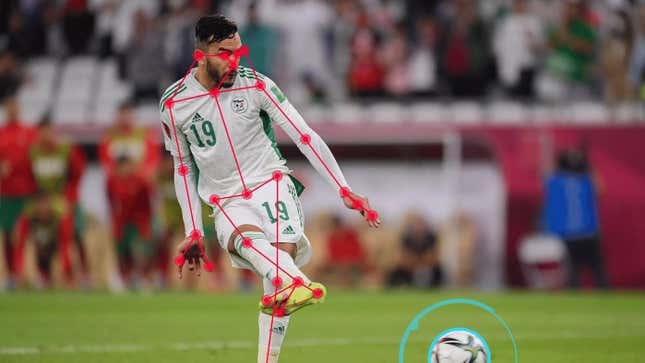
FIFA is leaving no room for debate over whether a goal was offside or onside during the upcoming World Cup. The international governing body of association football announced the use of semi-automated technology to help referees make more accurate offside decisions at the FIFA World Cup being held in Qatar in November.
Here’s how it will work. There will be 12 cameras installed underneath the roof of the stadium to track the ball across the field, as well as 29 data points of each individual player, including all relevant limbs and extremities. The cameras will detect the positioning of the ball and the players at a rate of 50 times per second, calculating their exact position on the field.
Through the collected data, the new system will provide an automated offside alert to video match officials inside the video operation room on whether or not a player was in an offside position. An offside position is when any part of the player’s body is closer to the opposing team’s goal line than both the ball and the second-last opposing player, with the last usually being the goalie.

The video match officials will then manually review the data before informing the on-field referees. The data will also be used to generate a 3D animation of the play that details the positioning of the players involved at the moment the ball was played, which will then be broadcast on giant screens at the stadium. FIFA estimates that this whole process will take place within a few seconds, making for a faster, and more accurate offside decision making process.
“The testing has been a major success and we are very confident that, in Qatar, we will have a very valuable support tool to help referees and assistant referees make the best and most correct decision on the field of play,” Pierluigi Collina, chairman of the FIFA Referees Committee, said in a statement. “I know that someone called it ‘robot offside’; it’s not. The referees and the assistant referees are still responsible for the decision on the field of play.”
The World Cup will kick off on November 21 at the gulf state. Although the road to the football tournament has been controversial, with reports of thousands of immigrant workers having died while building the sites for Qatar’s World Cup.